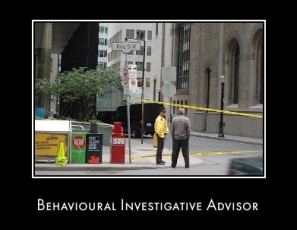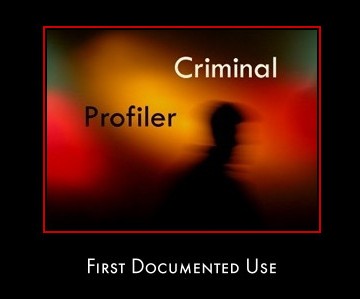
(Photo Credit: John Griffiths)
This post follows on nicely from the criminal profiling debate alluded to in the last blog entry, as it demonstrates how criminal/offender/psychological profiling has evolved over the years.
There is a page on the forensic psychology website where I discuss the scientific credibility of forensic psychology. In doing so I suggest that students should seek out a more balanced view when evaluating the credibility of forensic psychology as a whole and individual topics within the discipline. To back up this assertion I make the point there is more than one approach to criminal profiling, the guiding principles of which can differ markedly.
With this in mind, I'd like to draw your attention to the concept of the behavioural investigative advisor. According to an illuminating article produced by the psychology department at Liverpool University (UK), the term behavioural investigative advisor reflects the fact that offender profiling has evolved from the traditional process of predicting the likely socio-demographic characteristics of an offender based on information available at the crime scene; toward a broader emphasis which embraces a range of reliable, tested and transparent evidence-based methods that psychologists can draw upon to assist the police during investigations.
"Extending well beyond attempts to set suspect parameters or explain the behaviour of offenders in one-off critical incidents, advisors can now assist on issues such as media strategy, interview strategy, DNA intelligence led screening, risk assessments, geographical analysis, veracity of victim statements and the linking of a series of crimes."
More Information
Click Here to read the offender profiling article from the psychology department at Liverpool University.
Click Here to access the scientific credibility of forensic psychology webpage.
Please share this Forensic Psychology Blog Post with others by adding it to your social bookmarks.




www.all-about-forensic-psychology.com
A Free & Comprehensive Guide to The World of Forensic Psychology
Offender Profiling


